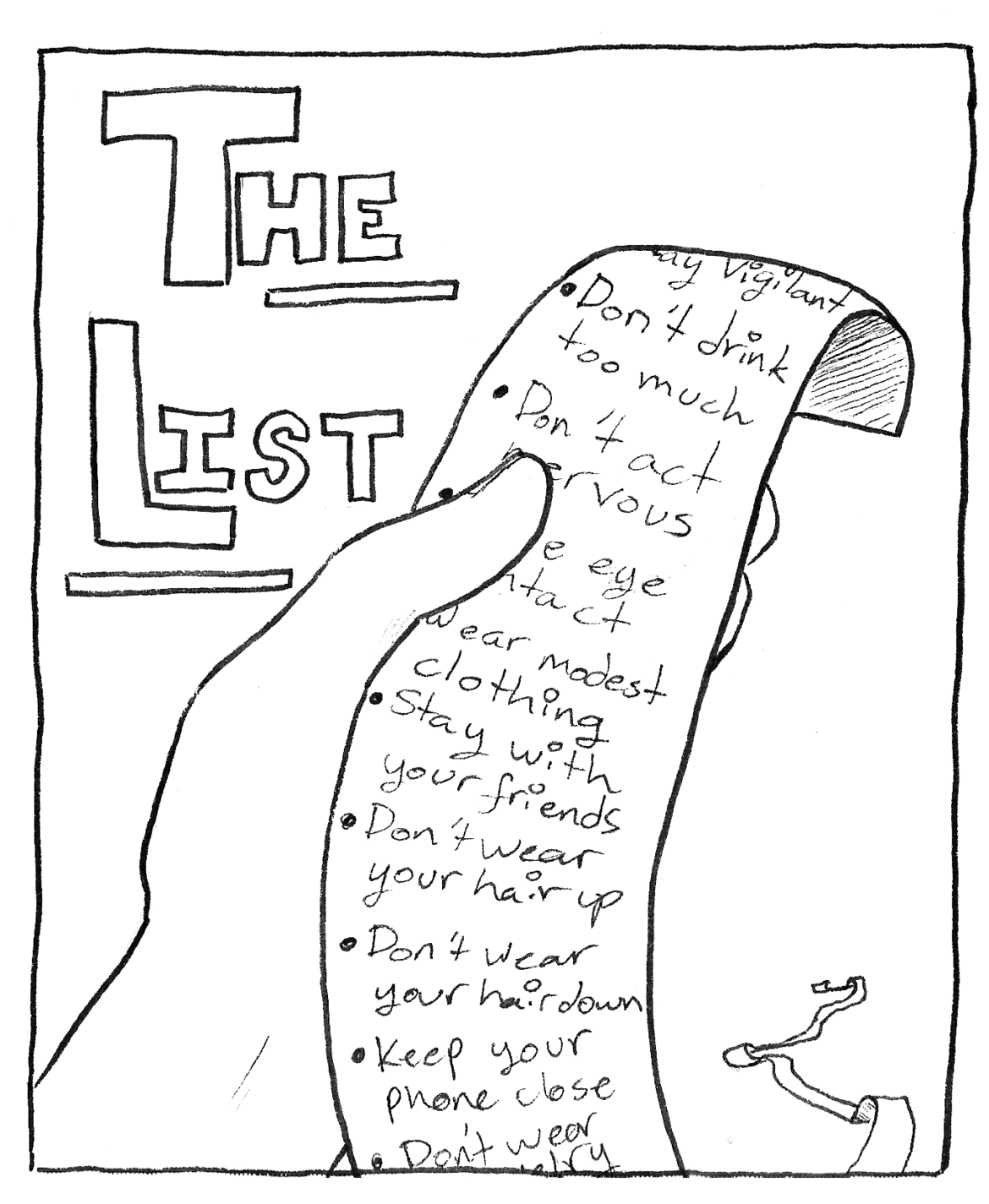Following the #Metoo movement — and in light of the Kavanaugh hearing — there has been a sudden uproar of men claiming that this is a dangerous time for them. That their freedom is being put at risk because they are unable to decipher the differences between what may be considered appropriate and inappropriate.
In the midst of women calling attention to sexual harassment, some men have come together to counter that they too are at risk. However, if we were to put these claims between men and women into perspective, women have been conditioned to remain on alert since we were old enough to learn how to become independent. Men, on the other hand, have much more freedom without constantly feeling as if they were a target.
In order to garner enough evidence to back these claims, I have conducted a study to view the differences on how men feel the need to protect themselves in public versus how women feel the need to protect themselves.
I asked a group of young women whose ages ranged from 25 to 28 years old, “As a woman, what are the ways you’ve found it necessary to protect yourself against sexual assault or assault in general? For example, do you carry your keys between your fingers, avoid walking home alone at night or anything of the like?”
Sandra, a 26-year-old digital illustrator, explained that she usually has her purse strap going across her chest in case she needs to take off running, walks in well-lit populated areas and listens to her surroundings.
“I don’t walk next to vans, I walk extremely fast and keep a ‘don’t talk to me’ face,” said Sandra. “Before I get into my car, I look around and then I quickly get in and lock it immediately.”
Nicole, a 25-year-old communication major, and Veronica, a 25-year-old biology major, both talk on their phones loudly or even pretend to when they walk to their cars at night.
“Sometimes I pretend I’m on the phone with someone and/or talk loudly to myself so people think I’m fucking insane and won’t fuck with me,” said Nicole.
Veronica and Nicole also carry objects they could use to defend themselves with while walking at night in case they are followed, such as a visibly large heavy object like a metal water bottle or even keys placed between their fingers.
“I definitely hold my keys between my fingers when I walk alone at night,” said Veronica. “If someone is walking behind me, I always let them pass. I don’t like feeling like I’m being followed.”
Katharine, a 28-year-old majoring in honors English, said, “As a woman living in the United States, I was raised to believe that men, especially strangers, were dangerous. Beginning in preschool, I was warned about ‘stranger danger’ and to avoid talking to any ‘strange’ men.”
As she’s gotten older, she has developed an even greater awareness to look behind her whenever someone begins to walk too close to her. She jokes that her fears are too paranoid and not based in any reality, but these fears may be misdirected as research shows that it is far more common that women are sexually assaulted by men that they know.
“In today’s world, women are taught to be afraid, even of male friends and family members,” said Katharine. “The lessons women have to learn, either from experience or in the classroom, make me wonder how many men are also taught to avoid being sexually assaulted?”
I posed the same question to my own boyfriend, PJ, where I asked him, “Do you or your friends ever have to consider the possibilities of being assaulted constantly when you’re walking at night or even alone during the day?”
“In my experience, it seems that guys don’t really have to worry about anything like that,” he said.
Taking this answer, I reached out to some of my male classmates in my Monday afternoon class for more insight into their tactics on preventing sexual assault.
Wyatt, a 21-year-old majoring in honors English, said, “No, not really. Not at all, I don’t worry about it.”
Eric, a 26-year-old majoring in honors English, explained, “The only thing I do is look over my back when I’m walking but other than that — not much. I don’t have to think about it constantly.”
In my senior seminar, I asked more of my male classmates at the end of class if they ever felt the need to protect themselves and the majority did not answer verbally but shook their heads.
To some men (and some women), sexual assault is seen as a device to manipulate others or to attain some kind of revenge. To some, it is an argument that is to be taken lightly and if provided the chance, they will find controversial comedy in this issue because there is no way something like this could ever, ever happen to them.
In addition to this, the tables have also turned and now some men are afraid to be accused of sexual assault. Some men are now afraid of women, that their lives will be ruined, and are now one step closer to actually feeling what it’s like to constantly keep a guard up. However, if men just smiled a little more I’m sure there’d be no reason to fear a sexual assault allegation.












